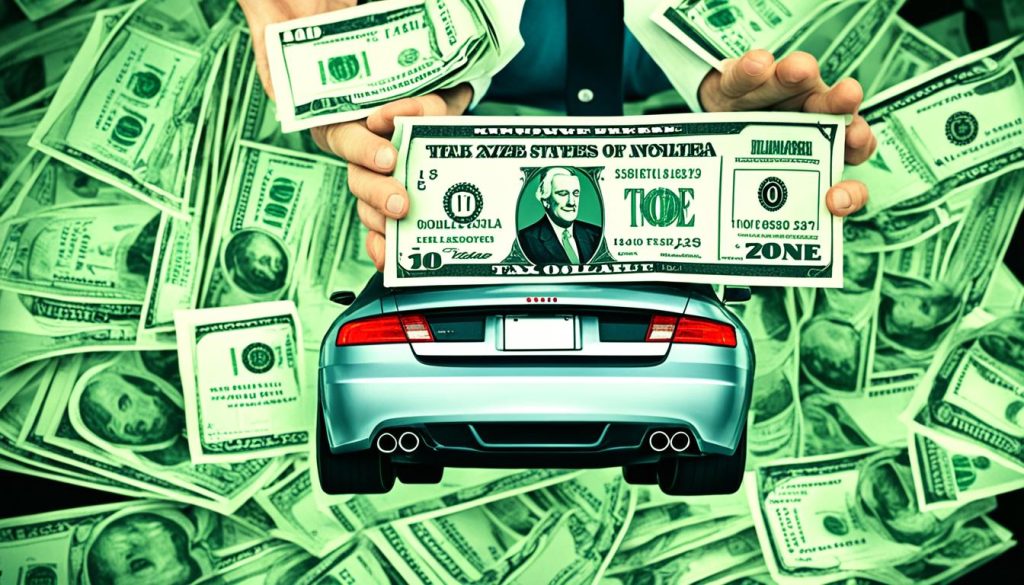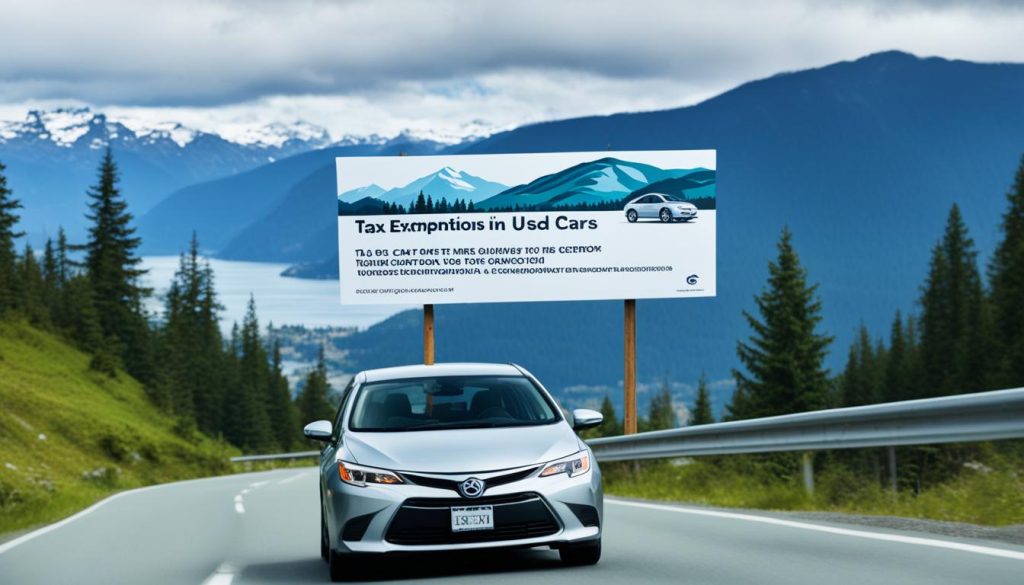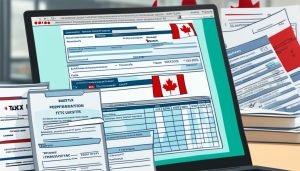When it comes to purchasing a used car, one of the factors that can greatly impact your decision is the cost. Fortunately, there are ways to minimize expenses, and one of the areas to focus on is taxes. Specifically, if you live in British Columbia, Canada, you may be wondering how to avoid paying taxes on a used car. By understanding the regulations and taking advantage of certain exemptions, you can save a significant amount of money.
In this article, we will explore the strategies to minimize or altogether avoid paying taxes on a used car in BC, as well as delve into the factors that contribute to a vehicle’s value depreciation. By the end of this read, you’ll be equipped with the knowledge to make an informed purchasing decision and potentially increase your savings. So, let’s dive in and discover the ins and outs of navigating the world of used car taxes in BC.
Understanding Sales Tax on Used Cars in BC
When it comes to purchasing a used car in British Columbia, understanding the sales tax landscape is crucial. Buyers in the province need to be aware of the different types of taxes applicable, as well as the tax implications of buying from a dealership versus a private seller.
1. Types of Sales Tax in BC
The two main types of sales tax that apply to used car purchases in British Columbia are the Goods and Services Tax (GST) and the Provincial Sales Tax (PST). The GST is a federal tax that is charged on most goods and services, including the purchase of a used vehicle. The PST, on the other hand, is a provincial tax that is specific to British Columbia.
2. Dealership vs Private Sales: Tax Implications
The tax implications for used car purchases can vary depending on whether the buyer is purchasing the vehicle from a dealership or a private seller. When buying from a dealership, the buyer is required to pay both the GST and the PST on the purchase price of the vehicle. However, when buying from a private seller, the buyer typically only pays the GST, potentially leading to significant savings compared to a dealership purchase.
3. Tax Rates for Used Cars in BC
The current tax rates for used car purchases in British Columbia are as follows:
- GST: 5% of the purchase price
- PST: 7% of the purchase price (when buying from a dealership)
It’s important to note that these tax rates are subject to change, and buyers should verify the current rates before making a purchase.
Navigating the sales tax landscape for used car purchases in British Columbia can be complex, but understanding the key considerations can help buyers make informed decisions and potentially save on their overall tax liability.

Buying from a Private Seller
When it comes to purchasing a used car in British Columbia, buying from a private seller can offer significant tax advantages compared to purchasing from a dealership. The do i have to pay tax on a used car from a private seller bc? is a common question, and the answer is often less than what is required at a dealership.
Advantages of Private Sales
When you buy a used car from a private seller in BC, you typically only need to pay the Goods and Services Tax (GST) or Harmonized Sales Tax (HST), depending on your location. This can result in substantial savings, as you avoid the additional Provincial Sales Tax (PST) that is required when purchasing from a dealership.
Reporting the Purchase Price Accurately
It is crucial to accurately report the private used car sales tax bc and the actual purchase price of the vehicle when registering the transfer with the Insurance Corporation of British Columbia (ICBC). Undervaluing the car can be considered tax evasion, which is illegal. Conversely, accurately reporting the used car private sale bc no tax and the fair market value ensures you are paying the appropriate amount of tax and avoiding any potential issues with ICBC or the Canada Revenue Agency.
Additionally, if the bc used car private sale tax exemption applies to your situation, such as in the case of a gift or transfer between immediate family members, it is important to properly document the transaction and provide the necessary paperwork to ICBC.

Gift or Transfer Between Family Members
In British Columbia, individuals may be able to avoid paying the provincial sales tax (PST) when gifting or transferring a used car to an immediate family member, such as a spouse, child, parent, or sibling. This exemption can lead to significant tax savings for buyers in can you gift a car in bc? transactions.
Procedure for Family Transfers
To qualify for the family transfer exemption, the buyer and seller must complete a Vehicle Registration and Title Transfer application with the Insurance Corporation of British Columbia (ICBC). This form requires the buyer and seller to declare their familial relationship, as well as the purchase price of the vehicle.
Provincial Regulations on Family Transfers
According to the used car tax exemptions canada guidelines, if the used car is being transferred between immediate family members, the buyer is typically only responsible for paying the applicable federal Goods and Services Tax (GST) or Harmonized Sales Tax (HST). The provincial PST is waived, provided the necessary documentation is submitted and approved by ICBC.
It’s important to note that the used car private sale bc no tax exemption only applies to transfers between immediate family members. Other types of used car sales in British Columbia are still subject to both the federal and provincial sales taxes.
Trade-Ins and Tax Savings
When it comes to purchasing a used car in British Columbia, one effective strategy to reduce the overall tax burden is to consider trading in your existing vehicle. The first source explains that when trading in a vehicle at a dealership, the trade-in value is deducted from the purchase price of the used car, effectively lowering the taxable amount. This simple step can significantly decrease the sales tax payable on the car sale.
How Trade-Ins Reduce Taxable Amount
The key benefit of trading in your vehicle is that the negotiated trade-in value is subtracted from the purchase price of the used car you’re acquiring. For example, if the used car you’re buying is priced at $20,000, and your trade-in is valued at $5,000, the taxable amount would be $15,000. This, in turn, reduces the provincial sales tax (PST) and federal goods and services tax (GST) that you’d be required to pay on the transaction.
Benefits of Trading In
Beyond the tax savings, trading in your vehicle can also provide other advantages. It simplifies the overall car-buying process, as you’re able to streamline the transaction and apply the trade-in value directly towards the purchase of your next used car. Additionally, many dealerships in British Columbia offer competitive trade-in prices, ensuring you receive fair market value for your vehicle. This can be particularly beneficial for individuals seeking to maximize their savings through the BC used car PST rebates program.
How to Avoid Paying Taxes on Used Car in BC?
When purchasing a used car in British Columbia, there are several strategies you can employ to minimize the tax burden. The key approaches include:
- Buying from a Private Seller: Purchasing a used vehicle from a private seller typically only requires paying the Goods and Services Tax (GST), potentially resulting in significant savings compared to buying from a dealership, where both the Provincial Sales Tax (PST) and GST are applicable.
- Gift or Transfer Between Family Members: If a used car is gifted or transferred between immediate family members, such as a spouse, child, parent, or sibling, the buyer may be exempt from paying the PST.
- Trade-Ins and Tax Savings: When trading in a vehicle at a dealership, the trade-in value is deducted from the purchase price of the used car, reducing the taxable amount and, in turn, decreasing the overall sales tax payable.
- Accurate Vehicle Appraisals: Obtaining a professional vehicle appraisal can help ensure the used car is valued accurately, potentially leading to a lower tax burden, especially if the vehicle has defects or damage.
By understanding and utilizing these strategies, you can effectively minimize the taxes payable on your used car purchase in British Columbia, resulting in significant cost savings.

Refunds and Rebates for Specific Vehicles
While the majority of used car purchases in British Columbia are subject to sales tax, the province does offer some tax refunds and rebates for specific types of vehicles. These exemptions can provide significant savings for eligible buyers, making it essential to understand the available options.
Eligibility for Refunds and Rebates
The two primary categories of vehicles that may qualify for tax refunds or rebates in British Columbia are vehicles adapted for persons with disabilities and environmentally friendly vehicles. For adapted vehicles, the province may provide a full or partial refund of the Provincial Sales Tax (PST) paid, depending on the specific modifications required. Similarly, certain eco-friendly vehicles, such as electric or hybrid models, may be eligible for PST rebates to incentivize the adoption of greener transportation options.
Application Process for Refunds and Rebates
To take advantage of these tax exemptions, buyers must follow a specific application process and provide the necessary documentation. This typically involves submitting proof of the vehicle’s adaptations or environmental credentials, along with the sales invoice and other supporting materials. The tax exemptions used cars british columbia and bc used car pst rebates application process can vary, so it is crucial for buyers to carefully review the eligibility criteria and follow the guidelines provided by the provincial government.
By understanding and leveraging these refund and rebate programs, buyers in British Columbia can potentially minimize their overall tax burden when purchasing tax exemptions used cars british columbia or bc used car pst rebates, ultimately leading to significant savings on their used car acquisition.

Vehicle Appraisals and Tax Reduction
When purchasing a used car in British Columbia, obtaining an accurate vehicle valuation can play a crucial role in minimizing your tax liability. The Insurance Corporation of British Columbia (ICBC) is responsible for assessing the value of used cars, but their valuation methods may not always align with the true market value, especially for vehicles with defects or damage.
Importance of Accurate Vehicle Valuation
If you’re buying a used car from a private seller, a professional vehicle appraisal can provide a more precise assessment of the car’s worth. This is particularly important if the vehicle has been involved in an accident or has other issues that may affect its diminished value. By obtaining an independent appraisal, you can ensure that the purchase price you negotiate is based on the car’s true market value, potentially leading to a lower taxable amount and reduced sales tax payments.
Professional Appraisal Services
There are several certified motor vehicle appraisers in British Columbia who can provide a detailed assessment of a used car’s condition and value. These professionals use industry-standard methods to evaluate factors such as the vehicle’s make, model, age, mileage, and any existing damage or repairs. By presenting the appraiser’s report to the ICBC, you can demonstrate the car’s accurate value and potentially negotiate a lower sales tax rate based on the diminished value.
Avoiding Common Pitfalls
When navigating the used car market in British Columbia, it’s crucial to be aware of several common pitfalls that can lead to unwanted tax consequences. By understanding and avoiding these traps, buyers can ensure they maximize their tax savings when purchasing a pre-owned vehicle.
Under-Declaring the Purchase Price
One of the most significant risks is the temptation to under-declare the actual purchase price of the used car. This practice, known as under-declaring the purchase price, is a form of tax evasion and can result in severe penalties if discovered by the authorities. Buyers must be diligent in reporting the true sale value to avoid facing consequences for tax evasion used cars british columbia or exploiting bc used car tax loopholes.
Overlooking a Vehicle’s History
Another common pitfall is overlooking a vehicle’s history when evaluating a used car purchase. Failing to conduct a thorough review of the car’s history, such as checking for any outstanding loans, accidents, or major repairs, can lead to unexpected financial burdens down the line. Buyers should take the time to research the vehicle’s background to ensure they are making an informed decision.
Ignoring Pre-Purchase Inspection
Lastly, ignoring pre-purchase inspection can be a costly mistake for used car buyers in British Columbia. Skipping a professional inspection can result in purchasing a vehicle with hidden defects or issues that may require significant repairs, ultimately increasing the overall cost of ownership and potentially reducing the vehicle’s value. Investing in a thorough pre-purchase inspection is essential to avoid these pitfalls.
By being aware of these common pitfalls and taking proactive steps to avoid them, buyers in British Columbia can navigate the used car market with confidence and maximize their tax savings.
Provincial Variations and Considerations
When purchasing a used car in Canada, it’s crucial to understand the nuances in sales tax laws across different provinces. Each province has its own unique regulations and exemptions that can significantly impact the final cost of a used vehicle transaction. Let’s explore some key provincial considerations that can help you minimize your tax burden.
1. Alberta: No PST Advantage
Unlike British Columbia, Alberta does not levy a provincial sales tax (PST) on used car purchases. However, this does not necessarily translate into a tax advantage for buyers in Alberta. The lack of PST is often offset by higher vehicle prices, as dealers may factor in the potential tax savings when setting their asking prices. Nonetheless, the absence of PST can still provide some cost savings compared to provinces that do charge the additional tax.
2. Quebec: Book Value vs Sale Price
In Quebec, the sales tax on used cars is calculated based on the greater of the vehicle’s book value or the actual sale price. This means that even if a buyer negotiates a lower sale price, the taxes may still be determined using the higher book value. Understanding this nuance is essential for Quebec residents to accurately estimate their tax liability when purchasing a pre-owned vehicle.
3. British Columbia: Trade-In Deductions
British Columbia offers a unique advantage for used car buyers who are trading in their existing vehicle. The trade-in value is deducted from the purchase price of the new vehicle, effectively reducing the taxable amount. This can result in significant savings on the overall sales tax owed, making trade-ins a strategic option for BC residents looking to minimize their tax burden.
4. Ontario: Family Transfer Exemption
In Ontario, a used car can be transferred between immediate family members, such as spouses, parents, children, or siblings, without incurring any provincial sales tax. This family transfer exemption can provide substantial savings for those who are gifting or inheriting a vehicle within their close-knit circle.
Understanding the unique tax considerations in each province is essential for used car buyers across Canada. By leveraging the available exemptions and strategies, you can maximize your savings and ensure a more favorable outcome when purchasing a pre-owned vehicle.
Conclusion
In conclusion, while it is not possible to completely avoid taxes when purchasing a used car in British Columbia, there are several legal strategies and exemptions that buyers can utilize to minimize their tax burden. By understanding the different types of sales tax, the advantages of buying from a private seller, and the benefits of trading in a vehicle, car buyers can potentially save a significant amount on their used car purchase.
Additionally, taking advantage of family transfer exemptions, obtaining professional vehicle appraisals, and avoiding common pitfalls can further assist in reducing the overall tax liability. It is important to stay informed about the latest provincial regulations and be proactive in navigating the used car market to ensure the best possible outcome for the buyer.
By employing these strategies and taking advantage of the available tax exemptions, car buyers in British Columbia can minimize the financial impact of sales tax and make a more informed and cost-effective decision when purchasing a used vehicle.
FAQ
1. Do I have to pay tax on a used car from a private seller in BC?
When purchasing a used car from a private seller in British Columbia, the buyer typically only pays GST or HST, potentially leading to significant savings compared to buying from a dealership, where both GST and PST are required.
2. Do you pay GST and PST on used vehicles in BC?
In British Columbia, the key types of sales tax on used car purchases are GST (Goods and Services Tax) and PST (Provincial Sales Tax). The tax requirements vary depending on whether the vehicle is purchased from a private seller or a dealership.
3. Can you gift a car in BC?
In British Columbia, if a used car is gifted or transferred between immediate family members, such as a spouse, child, parent, or sibling, the buyer may be exempt from paying PST.
4. How does ICBC value used cars?
The Insurance Corporation of British Columbia (ICBC) uses various factors to determine the value of a used car, including the make, model, year, mileage, and condition of the vehicle. However, the buyer can obtain a vehicle appraisal from an independent motor vehicle appraiser to ensure an accurate assessment of the car’s value.
5. Does ICBC pay diminished value?
ICBC does not typically pay diminished value, which is the reduction in a vehicle’s market value due to it being involved in an accident and repaired. Obtaining a professional appraisal can help the buyer negotiate a fair price that accounts for any diminished value.




